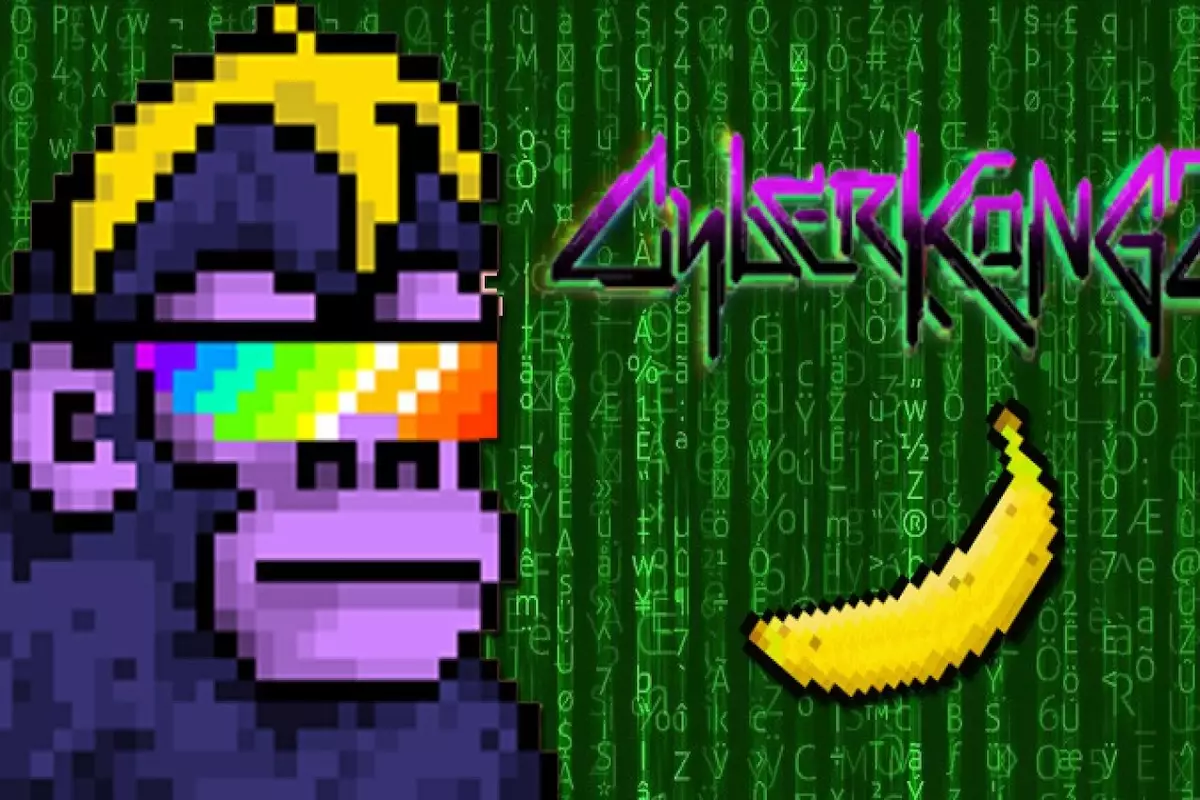The release of the Wells Notice concerning CyberKongz has generated a significant stir within the Web3 gaming community. As an official communication issued by the U.S. Securities and Exchange Commission (SEC), this notice highlights a pressing issue: the classification of Non-Fungible Tokens (NFTs). As gaming experiences continue to evolve through digital assets, the necessity for clarity on regulations surrounding NFTs becomes increasingly vital. The recent SEC actions could potentially reshape the landscape of the digital gaming economy, pushing developers to reconsider compliance and operational strategies going forward.
CyberKongz debuted its Genesis Kongz NFTs in April 2021, a venture that is now pivotal in the ongoing debate over NFT regulation. Following the sale, the SEC classified these NFTs as securities, raising the stakes for the broader NFT community. The Wells Notice suggests that the SEC might pursue enforcement actions against CyberKongz, presenting a daunting challenge for the project. Though CyberKongz argues that this was a contract migration rather than a primary sale, the SEC’s stance underscores an intensifying scrutiny of NFT classifications across the industry. This case is not merely an isolated incident; it serves as a critical touchstone for the Web3 domain, with the potential to redefine industry standards.
The implications of the CyberKongz Wells Notice extend beyond a single project—it represents a significant shift in how blockchain gaming companies will need to navigate regulatory frameworks. If such NFTs are deemed securities, the reconfiguration of tokenomics, community governance models, and fundraising mechanisms will become necessary across the sector. The forthcoming response from CyberKongz will hence be pivotal, as it will likely influence future discussions and determinations regarding digital gaming assets and their proper regulatory treatment.
Industry leaders, such as those from Axie Infinity, have expressed solidarity with CyberKongz, positing that stringent enforcement could drive the U.S. government to establish clearer regulations for Web3 gaming. For developers, regulatory clarity would enable a more stable environment for building sustainable business models. Thus, compliance measures will need to be integrated into token distribution and in-game economies proactively to facilitate long-term success.
While the United States grapples with how to regulate NFTs, it’s crucial to acknowledge that the global approach to NFT regulation is diverse. Europe is pioneering the Markets in Crypto-Assets (MiCA) framework, which could bring much-needed clarity to NFT classifications. While some regulators in Europe advocate for a light touch, categorizing NFTs outside traditional securities laws, others demand rigorous oversight, especially when NFTs serve as vehicles for investment.
In Asia, countries like Singapore and Hong Kong are leaning toward promoting innovation, yet they remain vigilant against potential investor risks. The regulatory environment seeks a careful balance between fostering growth and ensuring consumer protection. Meanwhile, in Latin America and Africa, a more lenient view of NFTs emerges, seeing them as avenues for economic opportunity rather than investment vehicles, although regulatory oversight is expected to catch up as the markets mature.
Navigating the complex web of regulations across various jurisdictions poses a significant challenge for companies like CyberKongz. The potential classification of gaming tokens as securities would force a reevaluation of compliance requirements, including enhanced disclosure standards and investor protection measures. Startups previously benefiting from open-source ecosystems and experimental tokenomics will likely face increased pressure to align with stringent regulatory standards.
Complying with these evolving regulations could ultimately effectuate trust within the blockchain gaming space. Establishing clear compliance frameworks will not only mitigate legal risks but also foster a more transparent and sustainable industry. As companies adapt to the looming regulatory requirements, they will need to implement robust Anti-Money Laundering (AML) and Know Your Customer (KYC) protocols to ensure a safe environment for players and investors alike.
As we move forward, the outcome of the CyberKongz Wells Notice will likely incite a greater collaboration between gaming companies, regulators, and consumer protection bodies. The goal will be to harmonize innovation with adequate safeguards for investors and players. By prioritizing compliance and monitoring global regulatory developments, blockchain gaming projects can both adhere to legal frameworks and deliver exceptional gaming experiences.
The CyberKongz Wells Notice serves as a pivotal moment that could redefine the regulatory landscape of blockchain gaming. With the correct approach to compliance and innovative practices, the industry can emerge more robust, resilient, and prepared to embrace its next chapter in the ever-evolving digital landscape. The forthcoming decisions will shape the future of Web3 gaming, signaling an era of increased accountability and transparency across the board.
















Leave a Reply